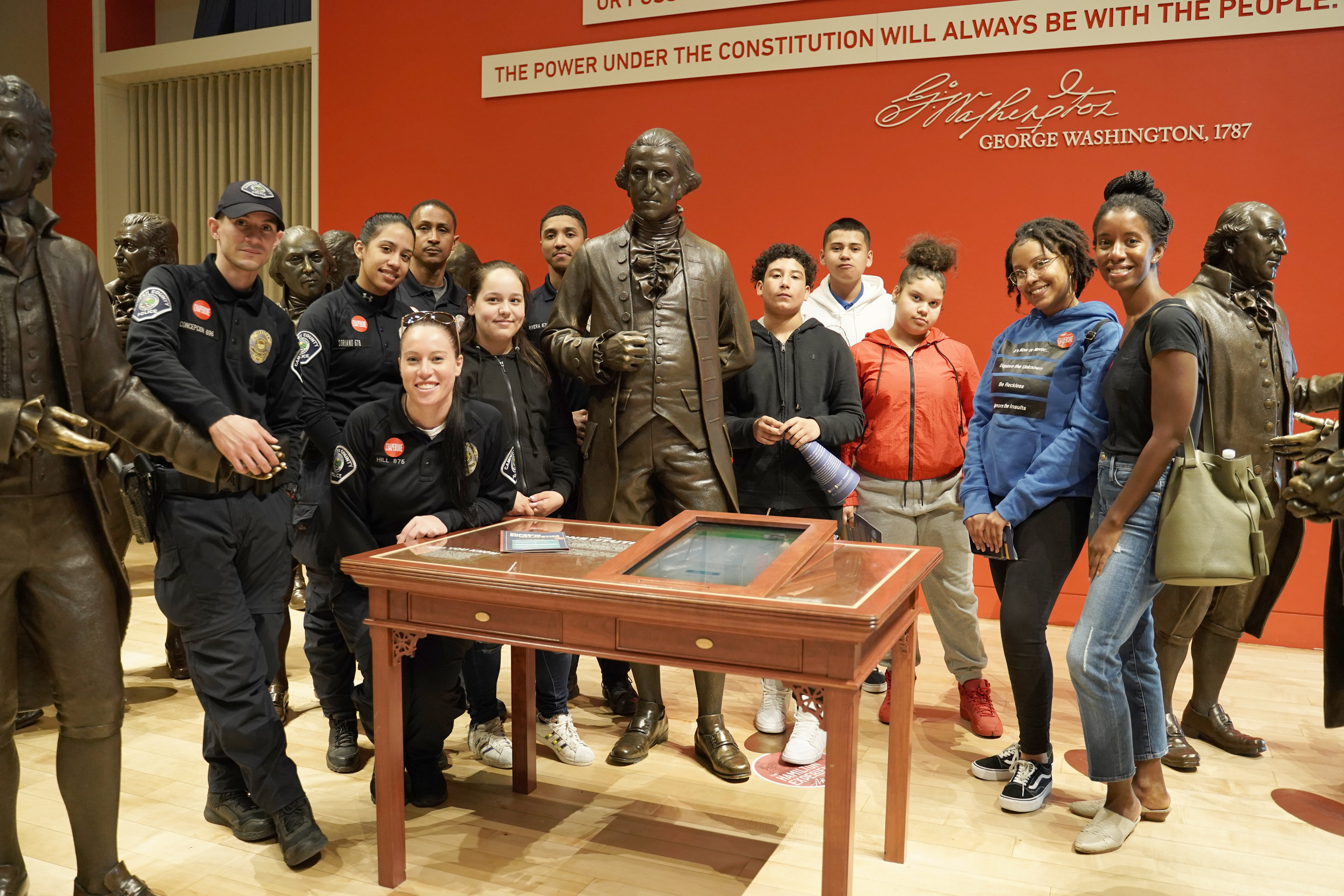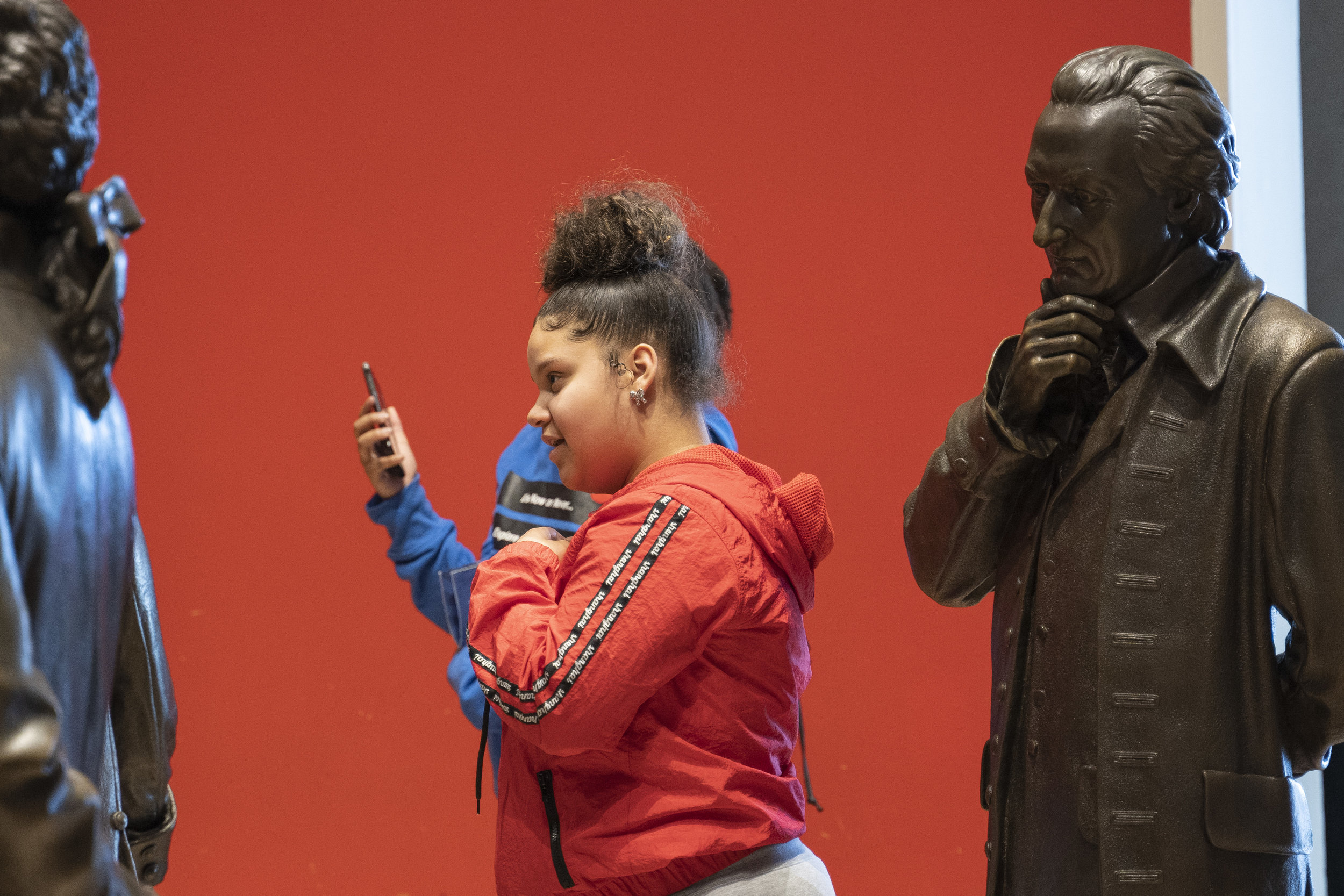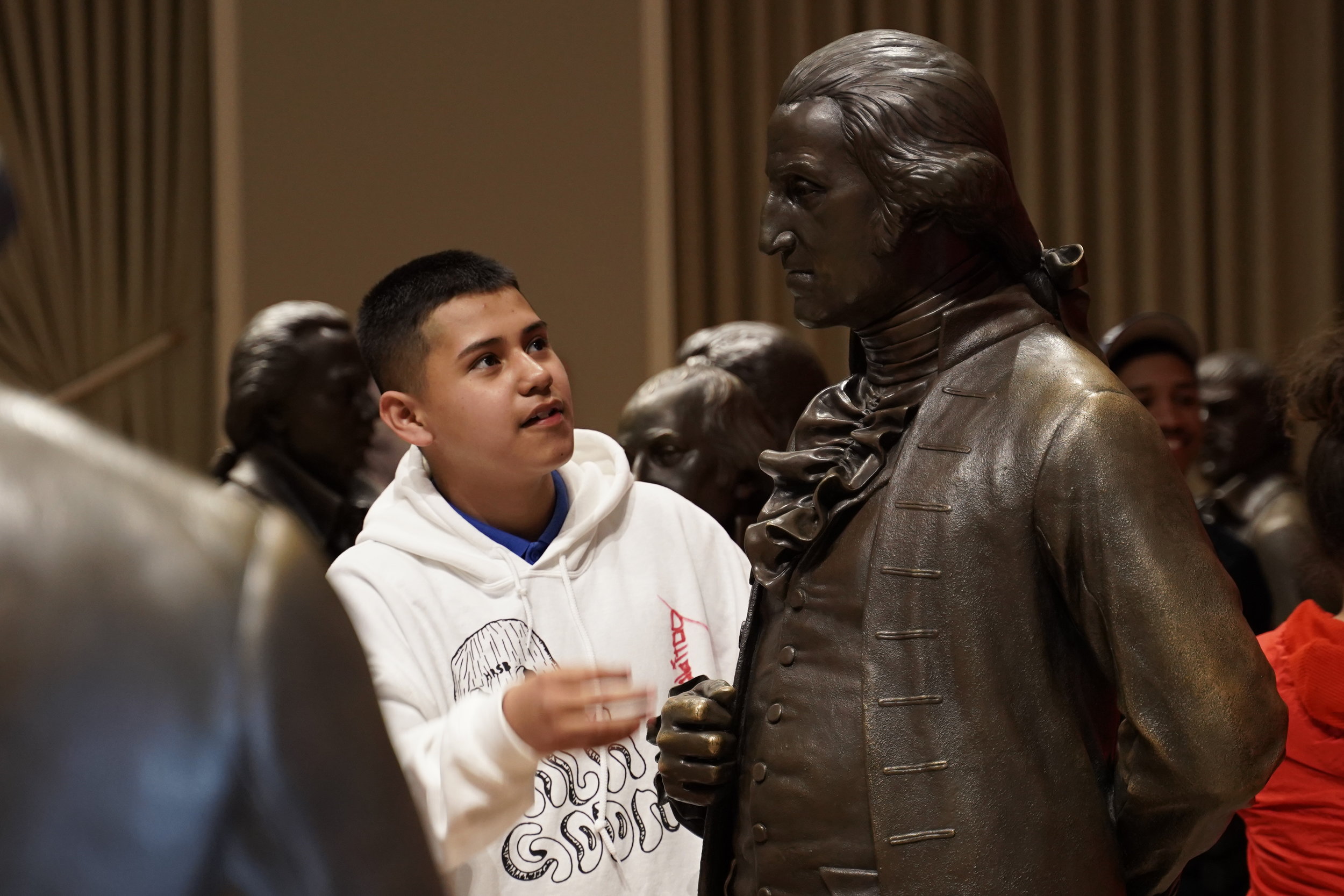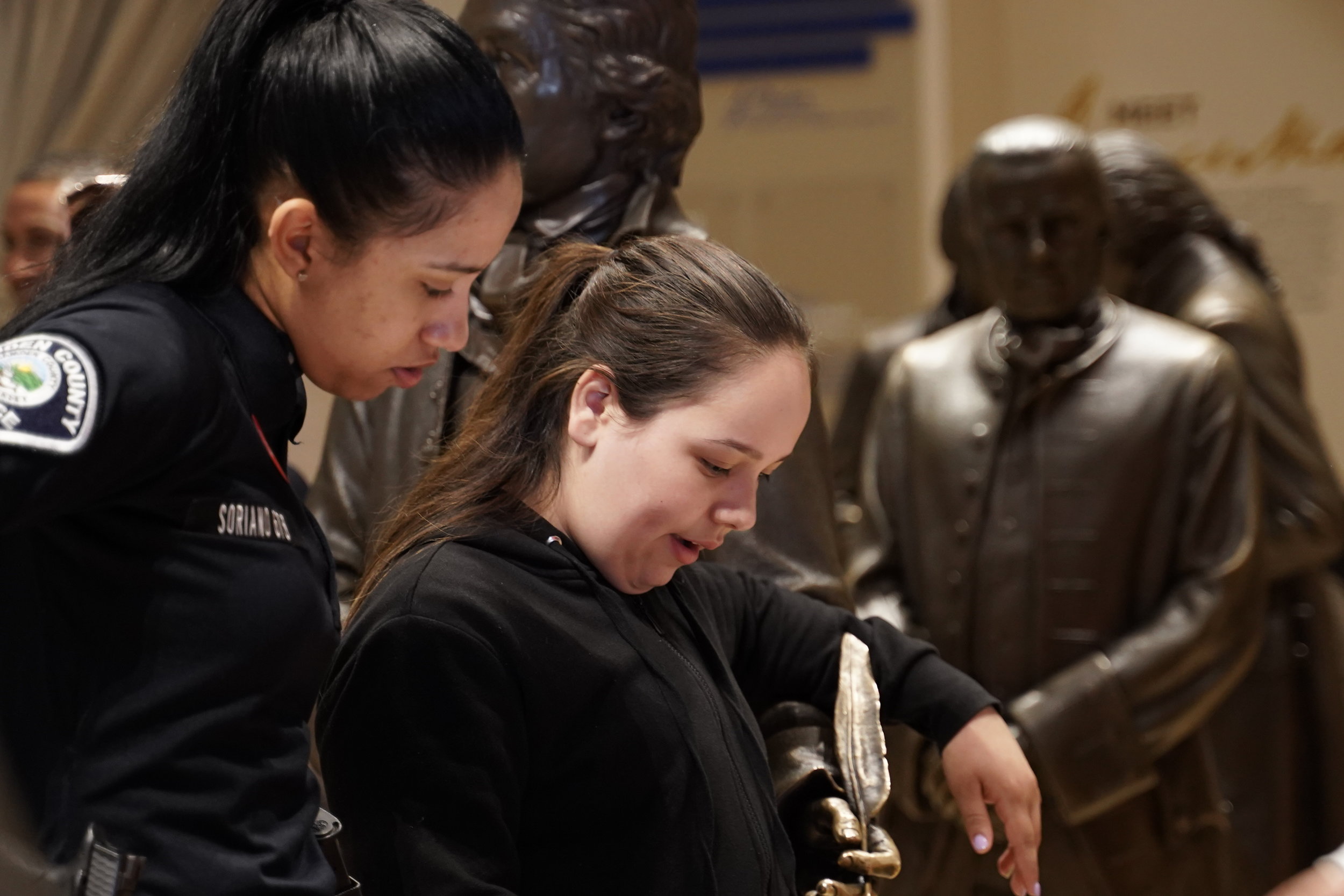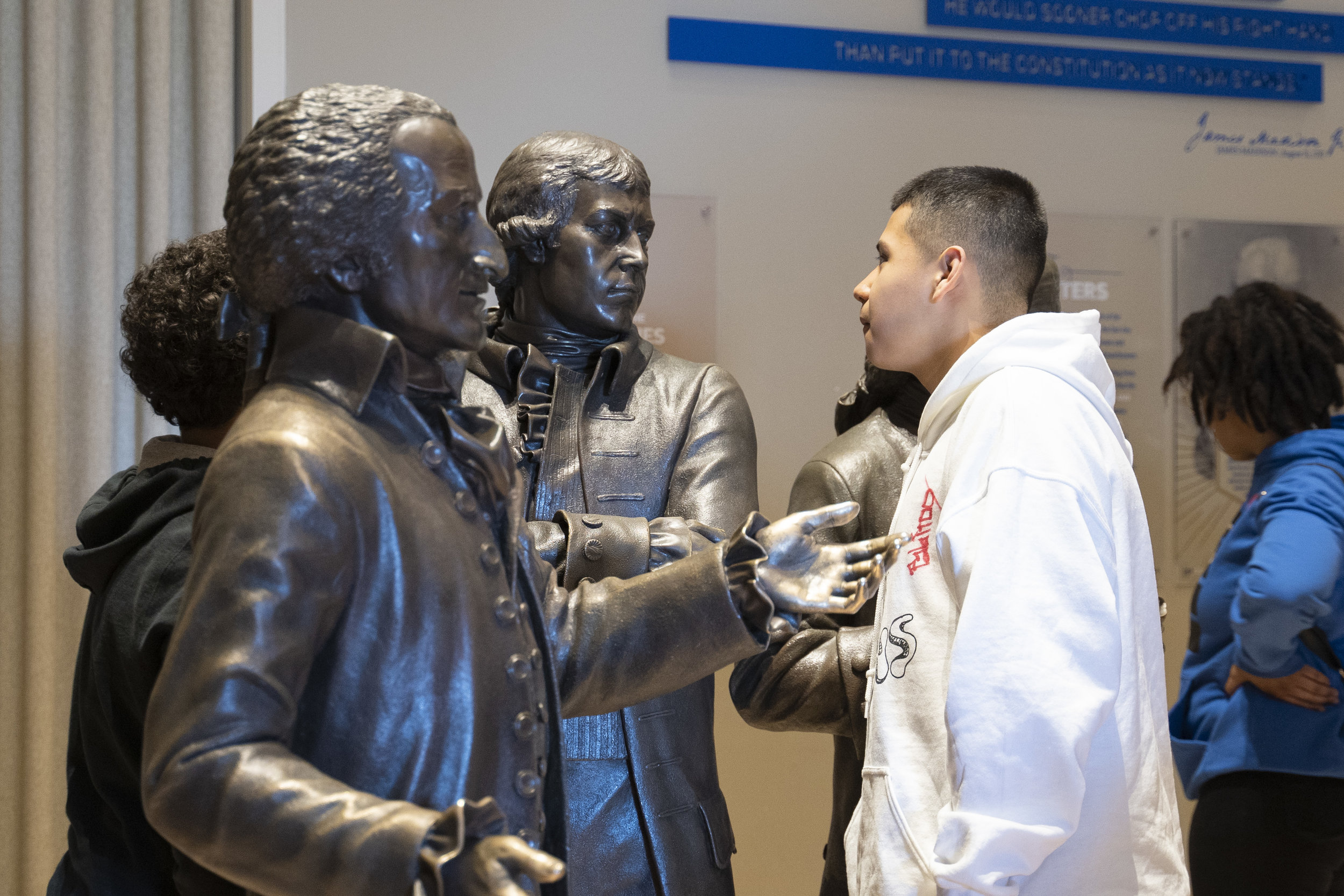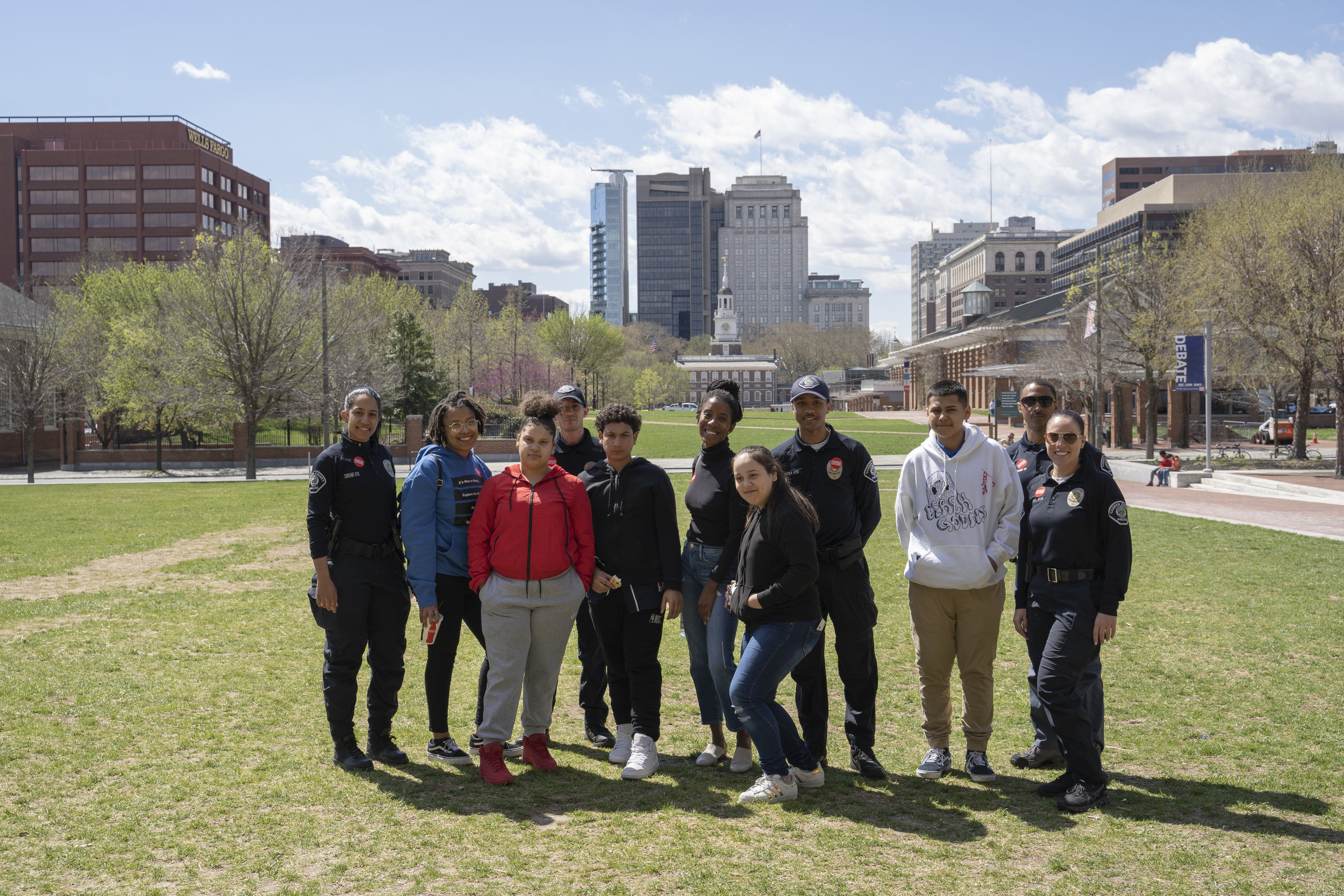The Policing Project recently took a field trip to the National Constitution Center in Philadelphia for a hands-on, interactive approach to participatory democracy—part of our Youth-Police Engagement Program in Camden, New Jersey.
Our youth program is underway at both Mastery East Camden Middle School and Woodrow Wilson High School. This year marks the second year of the program at Woodrow and our first year working with eight-grade students at Mastery.
The program is designed to establish a safe space for students to discuss issues around community, public safety and policing. Students share their perspectives on what policing is and should be, and through group discussions they work to formulate a vision of how youth-officer interactions could be improved in their communities.
Kicking off the semester and building relationships
One of the goals of the program is to create a path for youth and officers to get to know each other, and recognize each other as individuals—not solely as groups of “cops” or “kids.” In preparation for their first meeting with Camden County police officers, which took place last month, our Mastery group spent several weeks brainstorming questions for the officers. The students expressed that they wanted officers to explain unfair treatment of communities of color, including incidents that they had seen on TV.
Reflecting on this goal, and the idea that the “police” are a group made up of unique people, just like “kids,” the students geared their questioning towards asking the officers how each of them felt about these larger incidents, and about their responsibility to the community and to each other, in terms of doing the right thing in their work.
Other themes that arose included questions about the officers’ backgrounds: Were they from Camden? How do they feel about the community? What did they want to be growing up? There were also a lot of questions around life as an officer: Do they feel safe at work? Do they feel like they are making an impact? Are male and female officers treated differently? How many hours do they work?
Continuing conversations
Although the students were a bit nervous, the first meeting with the officers felt like a success for everyone. The group went from standing with the officers on one side and students on the other, to everyone deeply engaged in small group discussions. Afterwards, the students remarked that they learned that “the officers are people—just like us.”
One student commented that she liked hearing different perspectives from the various officers and that it was “interesting to see how we might not agree…I learned more about some of the things that cause them to make certain decisions.”
The officers were all really impressed by the students’ efforts and also enjoyed hearing their concerns. One officer remarked, “These kids are really smart—I was truly impressed by the questions.”
We’ll continue building on our visit to the NCC through discussions on why democracy is important when it comes to thinking about ideas around policing.


